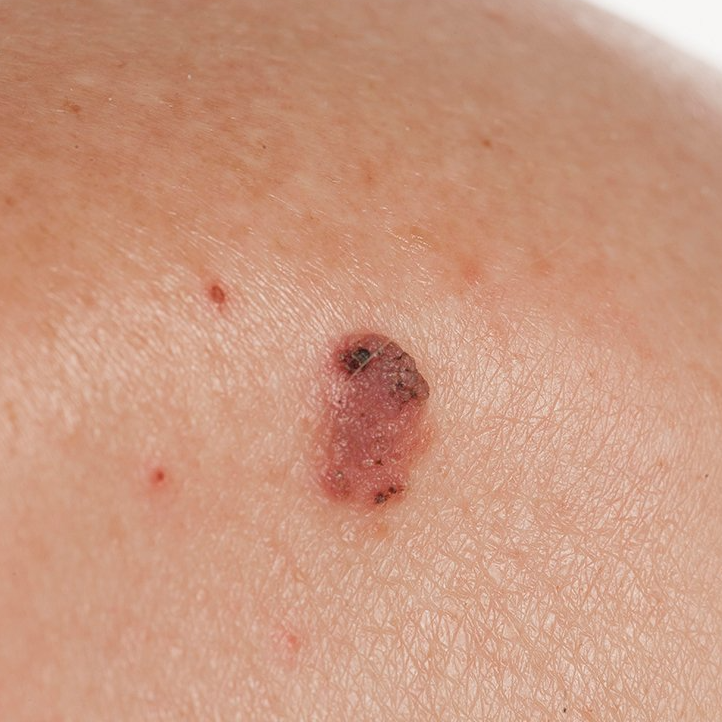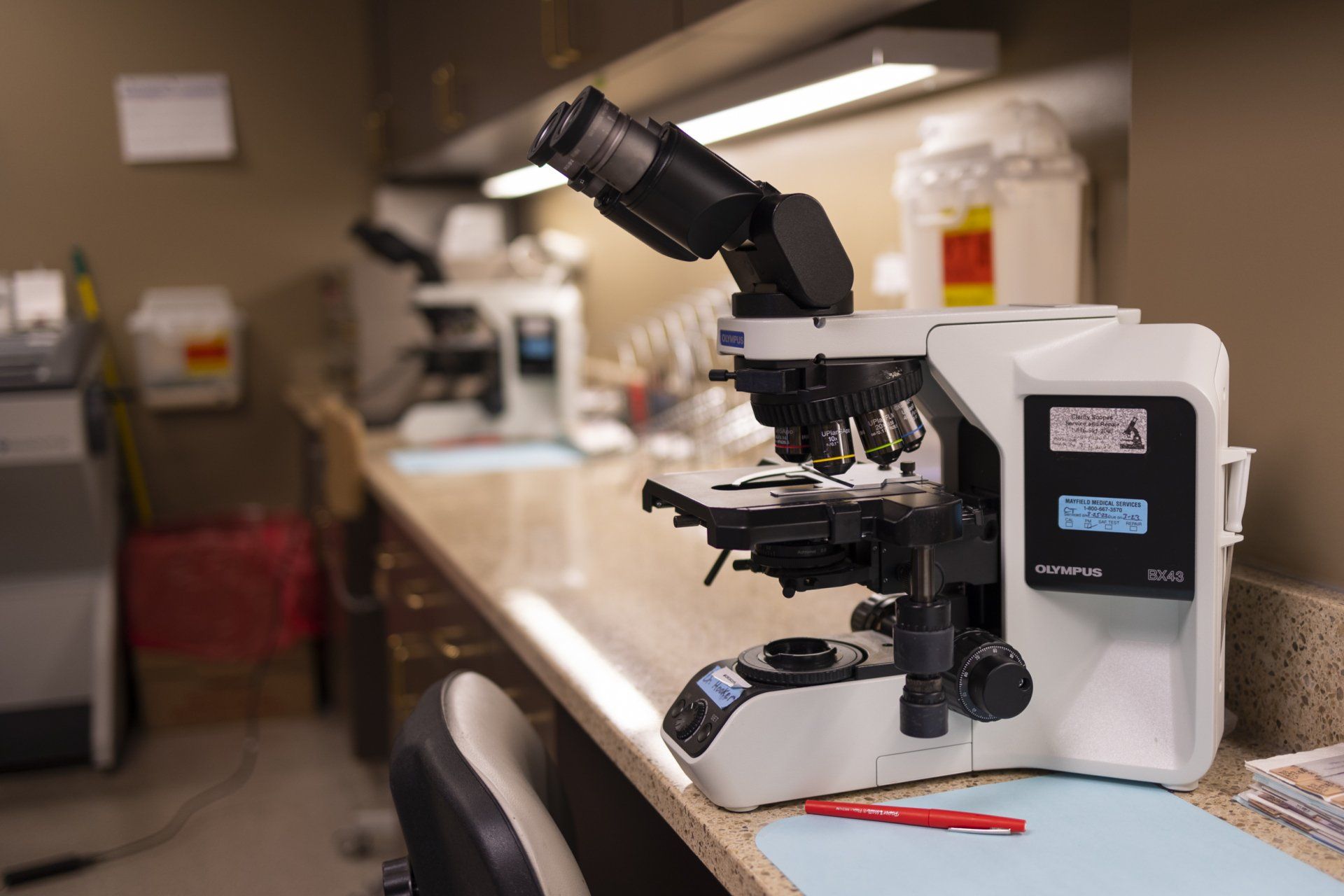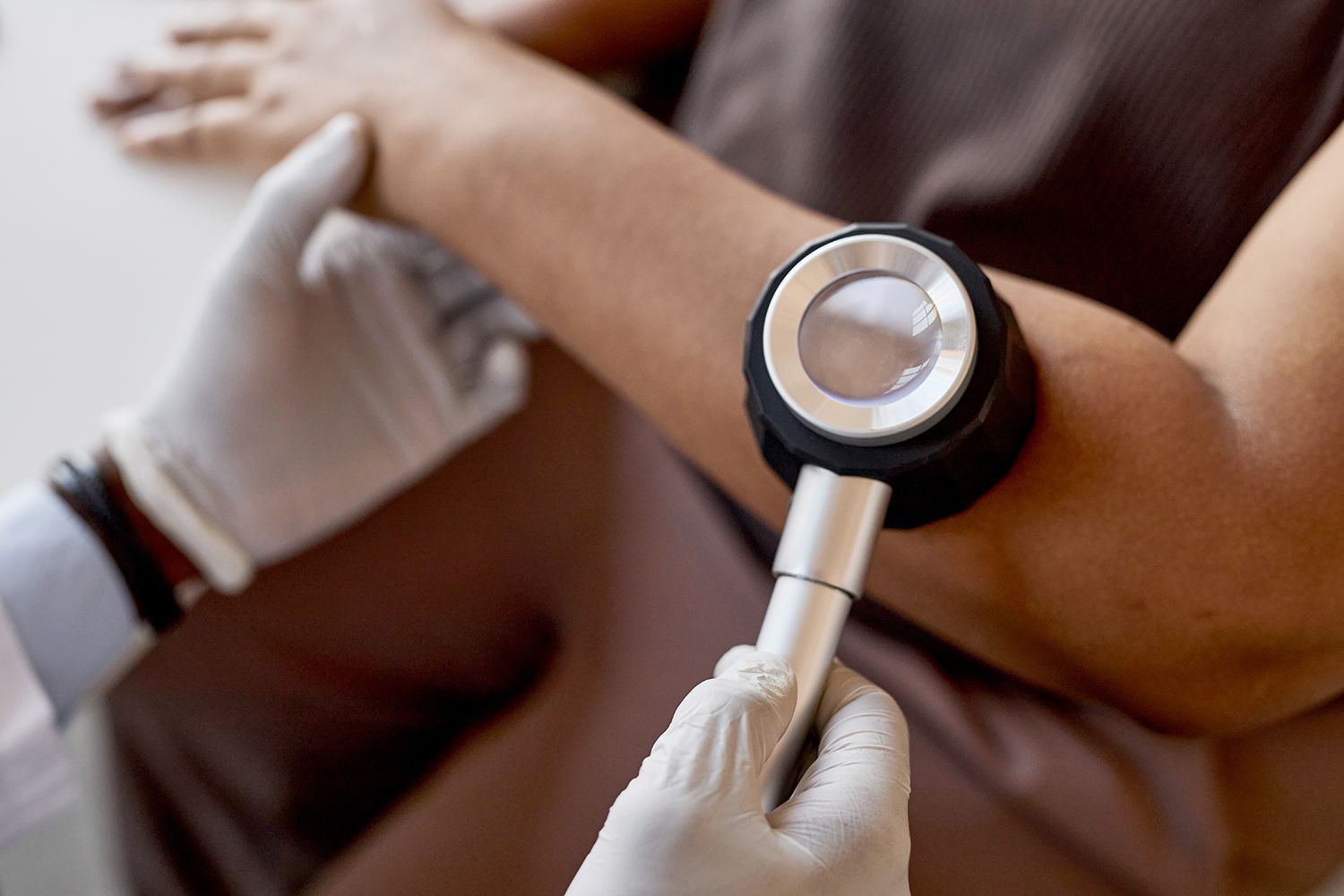What You Should Know About Squamous Cell Carcinoma
What is Squamous Cell Carcinoma?
Squamous cell carcinoma is the second most common form of skin cancer in the United States with approximately 700,000 to one million cases diagnosed annually. It usually appears as a small, scaly, and red sore or bump that is sometimes painful. However, it can mimic other conditions, and look similar to a scaly rash or bug bite. If left untreated, it has the potential to become aggressive.
Most squamous cell carcinomas are the result of prolonged exposure to ultraviolet radiation (UV light). The most common sources for UV light include natural sunlight and tanning beds. While these cancers can form anywhere on our body, they are mostly found in areas that have chronic sun exposure over the years.

"Most squamous cell carcinomas are the result of prolonged exposure to ultraviolet radiation (UV light)"
Treating squamous cell carcinoma early is important. Without treatment, squamous cell carcinomas continue to grow. Most of the time, they grow relatively slowly. However, some may grow rapidly or insidiously which then becomes an urgent issue for patients. Sometimes, squamous cell carcinomas can even break through the bottom layer of skin and spread to fat, muscle or other parts of the body.
If you are concerned that you may have a squamous cell carcinoma on your skin, the best thing to do is to visit a board-certified Dermatologist. They have special training to recognize if the lesion of concern is a squamous cell carcinoma or another type of skin cancer. Many times, the biopsy can be done on the same day as your visit. From there, a personalized plan of care will be discussed for you or your loved one.
Some board-certified Dermatologists also completed an additional year of fellowship-training in Mohs Micrographic Surgery and Dermatologic Oncology. These specialized dermatologic surgeons that spent an additional year of training provide the best care possible, with the highest cure rate for skin cancer. At Trinity Dermatology, we provide this high quality of care for our patients.
If you or a loved one want to get evaluated for a potential skin cancer, or would like a full body skin examination to look for skin cancers,
we would love to participate in your care.






